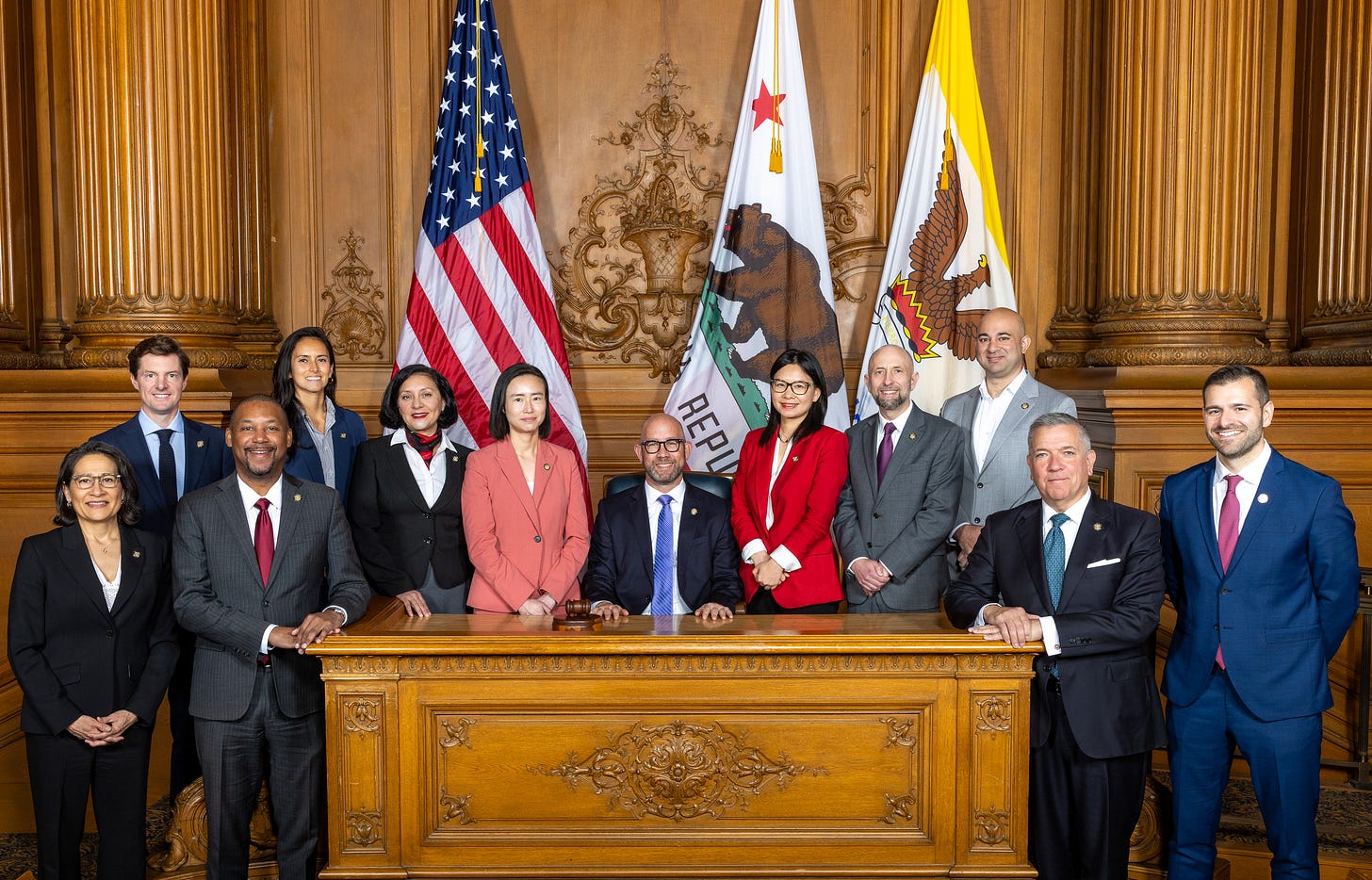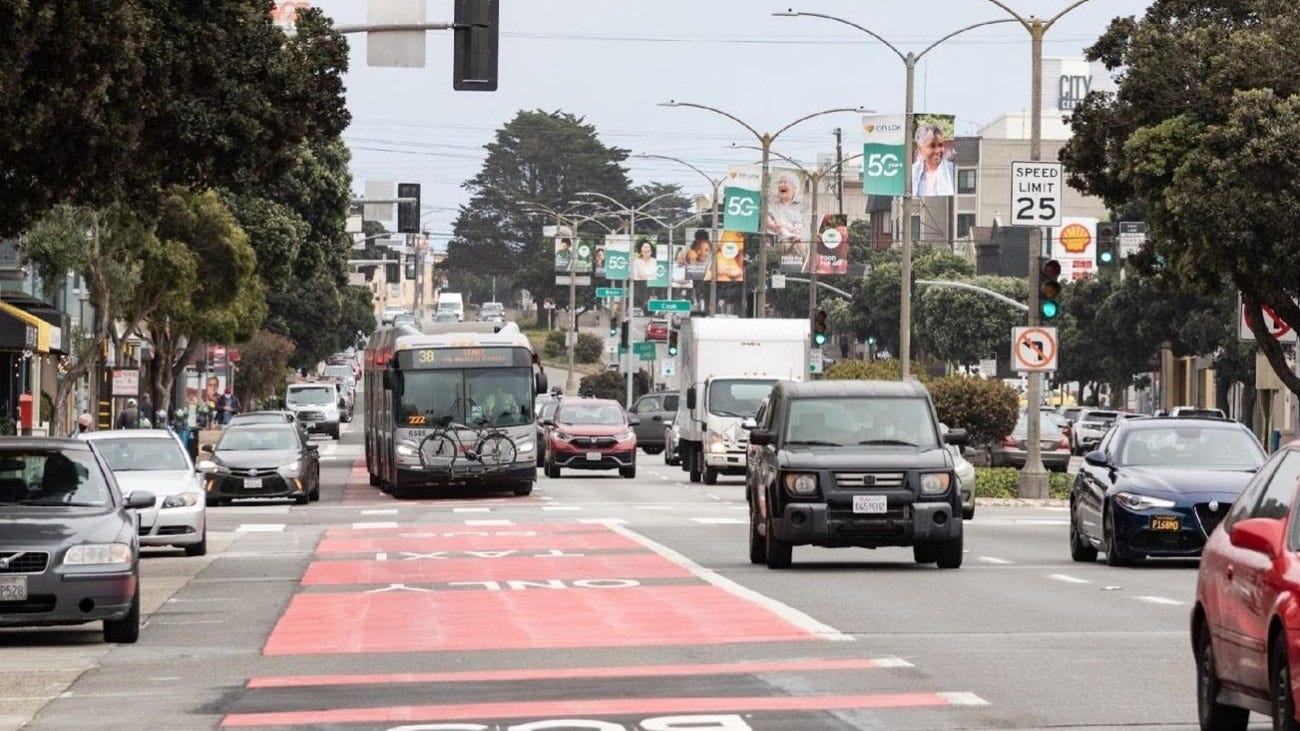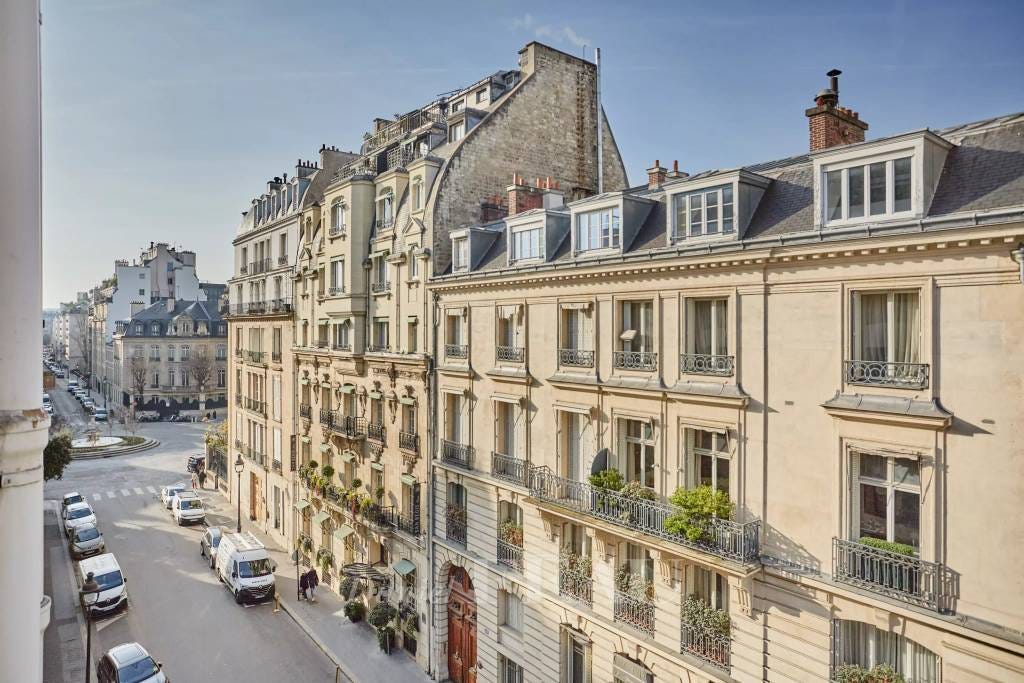San Francisco politics isn’t a fight between progressives and moderates. It’s a fight between urbanists and anti-urbanists.
This week's BOS meeting was slow so I'll resume the recaps next week
The Way We Label SF Politicians Drives Me Crazy:
When I was first interning for the District 6 office, I began by cramming as many articles as I could to get up to speed on SF politics. One of those articles described Supervisor Connie Chan’s efforts to block a bus lane on Geary Blvd because it would tear up a handful of parking spaces; she was termed a progressive, and the politicians in support of the project were “moderates.” This framing drove me nuts. What was progressive about opposing public transit in favor of offering a mild convenience to shoppers? Is it better for the environment? No. Is it advantageous to the working class? No. Is there compelling evidence that it would hurt the small businesses? No!
Whenever someone asked me to describe politics in the city, I referenced that piece without fail.
That said, I won’t pretend like I had some misplaced faith in the purity of San Francisco progressivism that shattered under the weight of one author’s vocabulary. In undergrad, I wrote my senior thesis on the history of “progressive” opposition to housing in Berkeley circa the 1970s. In a city that defined itself by its enlightened gait, any reactionary impulse–be it fear of crime, outsiders, and traffic–could be construed as progressive if it was dressed in the right prose. Without a local Republican party to serve as a compass of immorality, political philosophy had no compass.
San Francisco is much the same, with the “progressive” faction fighting against public transit and housing just as much as they fight to hold the police accountable and tax big businesses. In short, local politics are complicated. I don’t blame papers like The SF Chronicle and The SF Standard for using terms of convenience like moderate and progressive; their job is to tell the news of the day, not explicate widely-used labels. But in this Substack, one of the benefits of not having editors (beyond not having to worry about trivialities like punchy, concise writing) is that I don’t have to do this.
New Labels For SF’s Political Factions:
So I want to put something else forward. There are a growing number of supervisors on the board who, while categorized as moderate by the media, nevertheless hold the functionally progressive position on the single most important issue facing San Francisco: land-use. They believe in aggressively building more homes to tackle the housing crisis, championing public transit, expanding the city’s walkability, and cutting through the thick permitting requirements we impose on small businesses. This collection of policies aims to decrease the cost of living in SF and protect the environment by making San Francisco more like a European city.
In future articles, I’ll describe these supervisors as the Urbanist Coalition. The coalition possesses a tenuous 6-5 majority on the board, including Supervisors Bilal Mahmood, Matt Dorsey, Joel Engardio, Myrna Melgar, Stephen Sherrill, and Danny Sauter. I'll note that while many of the above are more moderate on public safety, their support for law enforcement is generally a means to an end of ensuring a reasonable degree of public order. None of them, not even Supervisor Dorsey, advocates a traditional broken-windows approach to crime.
I acknowledge that I’m asserting this view on land use. And I agree that our decisions over everything from business taxes to fentanyl policy carry immense weight. But there are two basic visions of what San Francisco will look like by 2050: one entails the city becoming rapidly akin to Paris, with widespread density and walkability. The other entails San Francisco looking much the same, albeit with rents that continue to climb. The fight over our management of the land will determine which vision wins.
To the latter outcome, I’ll note that even a progressive supervisor like Jackie Fielder, who genuinely supports transit and walkability, is often skeptical to downright hostile of market-rate housing. The logic here is that only affordable housing can limit rents–a position contrary to the existing academic research. The other problem is that SF has nowhere near the budget to build much social housing, and strict affordable housing requirements on developers result in little development. As a result, this strategy will result in limited densification over the next 20 years, just like it has over the last 20.
For any anti-urbanist politician, I’ll refer to their coalitions as follows: 1. I’ll use Leftist Coalition to describe those commonly referred to as “progressives”; I think this is easy to understand for most readers, and it doesn’t give them undue credit for blocking progressive land use reforms. This coalition includes Supervisors Jackie Fielder, Connie Chan, Shamann Walton, and Chyanne Chen. 2. Any politician defined by their support of the police who is not a clear backer of building more housing or transit, I’ll refer to as moderate. At the moment, the only supervisor who fits this description is Board President Rafael Mandelman. That said, this sentiment is not uncommon amongst voters and will likely produce future supervisors.
How These Coalitions Explain The City’s Political Geography:
Finally, I’ll conclude by adding that, while my arguments here are a touch partisan, the consensus “progressive vs. moderate” distinction really does miss something crucial about the political reality of San Francisco. Although reporters generally describe the 2024 election as a moderate takeover, this approach fundamentally fails to grasp what happened and why. While supervisors like Bilal Mahmood and Danny Sauter won surprise upsets over leftist candidates, they didn’t do so by being excessively moderate on public safety. Rather, they won a critical mass of young voters and traditional Democrats through a progressive urbanist vision.
Similarly, the progressive-aligned Supervisor Myrna Melgar in District Seven fended off a bid from the moderate, Grow SF backed challenger; however, these labels gloss over the fact that Melgar won voters across the political spectrum by presenting an urbanist outlook, while her opponent was pro-police but also NIMBY. In contrast, candidates like Marjan Philhour in D1 and Trevor Chandler in D9 prioritized public safety messaging above all else, ultimately failing to win broad support in their progressive districts.
That’s not to say that urbanism is unbeatable in San Francisco politics. In the working-class and suburban D11, urbanist Michael Lai lost to Cheyenne Chen, a labor organizer who opposed density yet nonetheless had more moderate views on public safety. Similarly, in the successful vote over Proposition K to turn the Great Highway into a park, the dense north and eastern parts of the city voted strongly in favor while the city’s suburban western and southern neighborhoods (which include District 11) opposed the measure.
Although urbanists like Mahmood and Sauter can win in their eastern districts, that strategy may not work elsewhere. For urbanist supervisors like Joel Engardio in the Sunset’s D4, for example, will being pro-police outweigh his commitment to density in the eyes of voters? Already, his support for Prop K has fueled a recall effort against him. And as the new upzoning moves to densify San Francisco’s urban areas, local politics may increasingly be defined by the geographic battle between urbanists and anti-urbanists.
Of course, as I went to publish this article, I found a similar one by SFYIMBY Organizing Head Jane Natoli. Still, the point stands.








'Leftists' still feels too generous
Small typo in an interesting piece: Joel Engardio represents District 4.